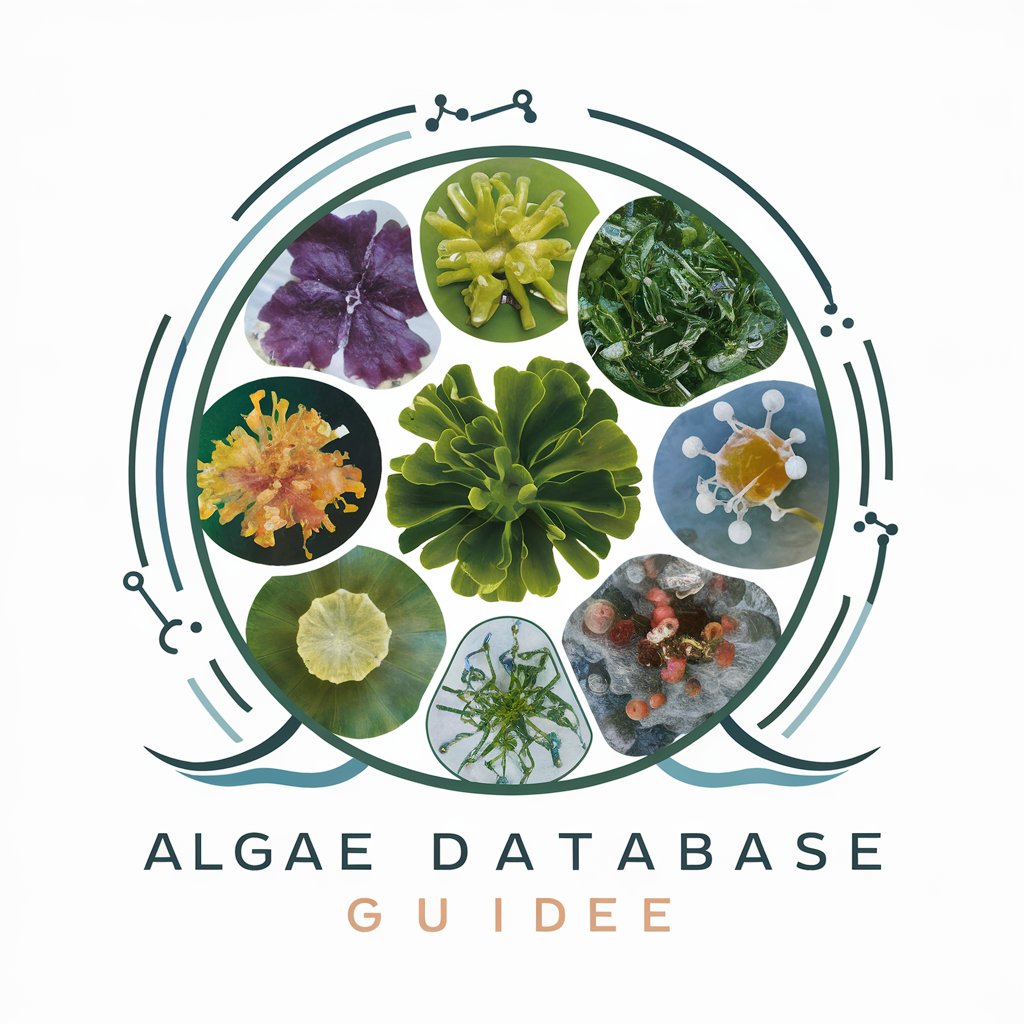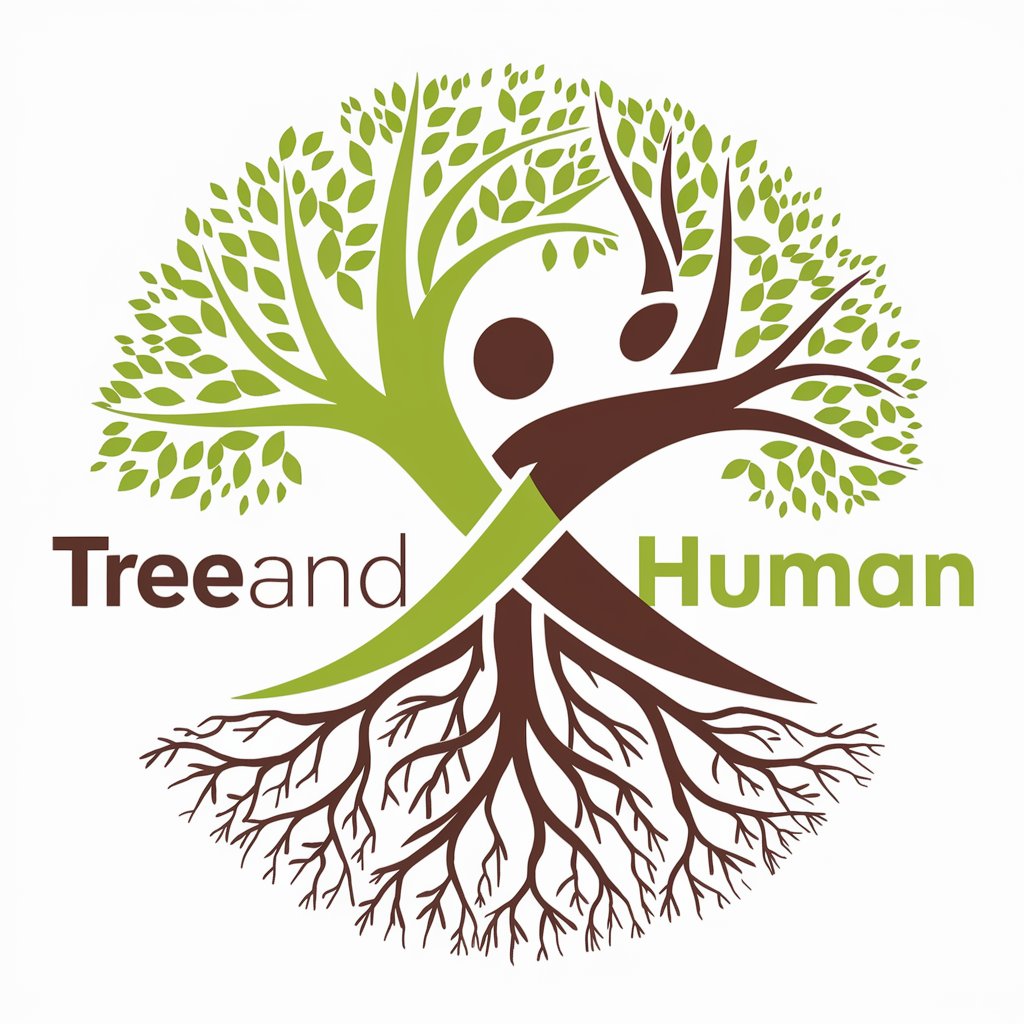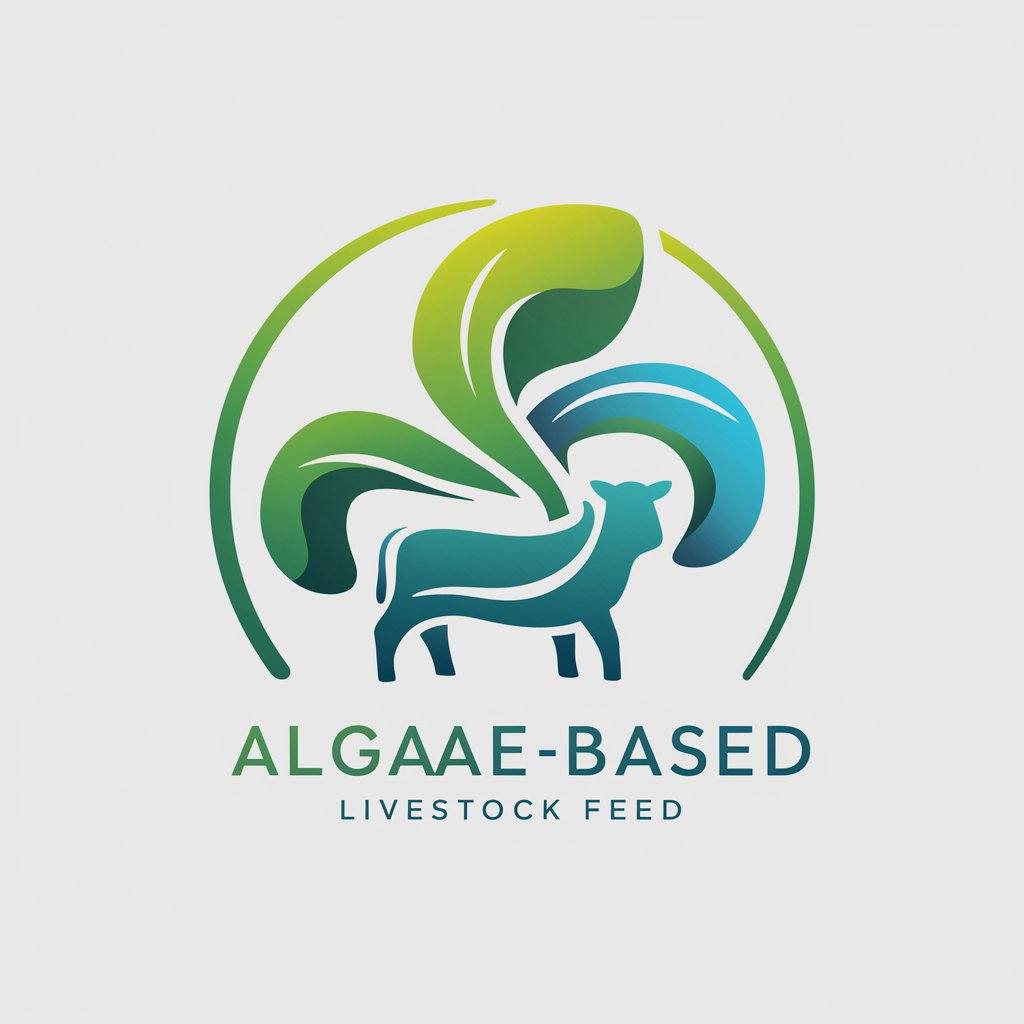Algae - Algae Information and Tools

Welcome to the Algae Database Guide!
Harnessing Algae's AI-Driven Potential
Explain the classification system of
Describe the habitat and visual characteristics of
Discuss the biotechnological applications of
Provide an overview of the historical uses of
Get Embed Code
Understanding Algae's Essence and Purpose
Algae, a diverse and ubiquitous group of photosynthetic organisms, are pivotal in both aquatic and terrestrial ecosystems, serving as the base of many food webs by producing oxygen and organic material from carbon dioxide and sunlight. They range from microscopic, single-celled phytoplankton to large, multicellular forms like kelp. Algae play crucial roles in environmental sustainability, such as carbon sequestration, and are utilized in various industries, including agriculture, where they enhance soil quality and plant growth; bioremediation, where they help in detoxifying wastewater; and biofuel production, offering a renewable energy source. Moreover, algae are instrumental in bioproducts like pharmaceuticals, nutraceuticals, and cosmetics, showcasing their versatility and potential in green technology and circular economy initiatives. Powered by ChatGPT-4o。

Algae's Multifaceted Roles
Agricultural Enhancement
Example
Algae-based fertilizers improve soil fertility and plant health, promoting sustainable agriculture practices. For instance, the application of seaweed extracts as biostimulants enhances plant growth, nutrient uptake, and resistance to stressors.
Scenario
In organic farming, algae-based soil amendments are increasingly used to enrich soil microbial life, thus supporting healthier crop yields and reducing chemical dependency.
Environmental Bioremediation
Example
Certain algae species are effective in absorbing heavy metals and pollutants from contaminated water, aiding in the cleanup of industrial effluents and agricultural runoff.
Scenario
Wastewater treatment facilities incorporate algae into their processes to naturally purify water before it's released back into the environment, demonstrating algae's role in environmental sustainability.
Renewable Biofuel Production
Example
Microalgae are cultivated for biofuel production, offering a sustainable alternative to fossil fuels due to their high lipid content and rapid growth rates.
Scenario
Research institutions and companies are developing algae-based biofuels that could power vehicles and industries, reducing greenhouse gas emissions and dependency on non-renewable energy sources.
Healthcare and Nutraceutical Products
Example
Algae are sources of valuable compounds used in dietary supplements, such as omega-3 fatty acids from microalgae, and in developing new medications.
Scenario
The pharmaceutical industry explores algae's bioactive compounds for their potential in treating diseases, while health-conscious consumers increasingly seek algae-derived supplements for wellness benefits.
Who Benefits from Algae?
Agricultural Professionals and Farmers
This group benefits from algae's soil enriching and plant growth-promoting properties, facilitating sustainable and organic farming practices.
Environmental Scientists and Engineers
Experts focused on environmental sustainability utilize algae for bioremediation projects, carbon sequestration, and in the development of eco-friendly materials.
Biotech Researchers and Industry
This sector leverages algae's diverse biochemical portfolio to develop biofuels, pharmaceuticals, and nutraceuticals, pushing the boundaries of green technology and bioinnovation.
Consumers Seeking Sustainable Options
Individuals looking for eco-friendly products and health supplements find algae-based products align with their values for wellness and environmental responsibility.

Guidelines for Using Algae
1
Start your journey at yeschat.ai where you can explore a free trial, without the need for registration or subscribing to a premium service.
2
Identify the type of algae suitable for your application, such as macroalgae for biofuel production or microalgae for dietary supplements.
3
Prepare your algae cultivation environment, ensuring you have the right nutrients and conditions for growth, like light intensity and water quality.
4
Harvest your algae responsibly when they reach maturity, using methods that sustain their viability and health if continuous culture is desired.
5
Utilize processed algae as required, for example, extracting oil for biofuels or drying and powdering for nutritional products, following safety guidelines.
Try other advanced and practical GPTs
Algalon Go
Crafting Golang Solutions with AI

TAHK O2 Bot
Empowering Environmental Change with AI

Bridge Marina Boater Guestimate GPT
AI-Powered Boating Engagement Suggestions

Boater's Mate
Navigate Safely with AI-Powered Boating Insights

Maritime Mentor
Navigating the Seas with AI

CA Captain Boating Expert
Navigate California waters with AI-powered expertise.

Mentor
AI-powered Mentor for Lifelong Learning

Algae for livestock feed
Revolutionizing Livestock Nutrition with AI

ankigpt
AI-Powered Bilingual Flashcard Creation

AI Sage
Illuminate AI, Responsibly.

Leonardo's Insight
Unleash Creativity with AI-Driven Art

Thesis GPT
Elevate Your Thesis with AI-Powered Insights

Frequently Asked Questions About Algae
What are the main types of algae used in industry?
The main types of algae used in industry include Spirulina and Chlorella, popular for dietary supplements, and macroalgae like kelp, used in biofuel production and bioremediation.
How can algae contribute to environmental sustainability?
Algae play a crucial role in environmental sustainability by absorbing CO2 during photosynthesis, potentially reducing greenhouse gases. They are also used in bioremediation to clean up pollutants from water bodies.
What are the nutritional benefits of consuming algae?
Algae are rich in proteins, vitamins, and minerals, particularly B vitamins, iron, and antioxidants. They are an excellent source of omega-3 fatty acids, which are important for cardiovascular health.
How is algae used in the production of biofuels?
Algae can be cultivated to produce biofuels by extracting oils for biodiesel and fermenting algae biomass to produce ethanol, offering a renewable energy source that can help decrease reliance on fossil fuels.
What challenges face the commercial scaling of algae production?
Challenges include high costs of cultivation and processing, maintaining optimal growing conditions to prevent contamination, and developing cost-effective harvesting and extraction technologies.
